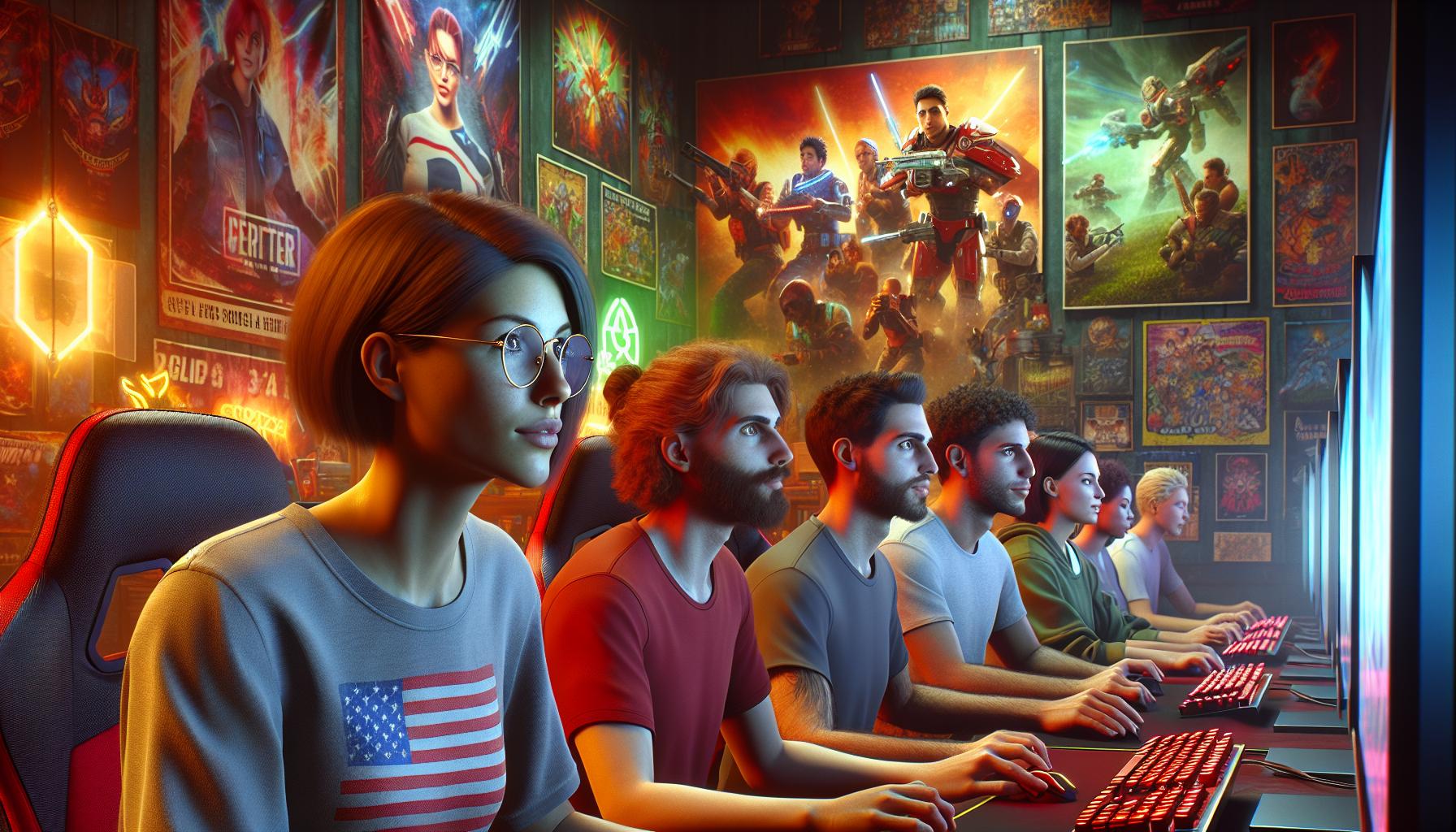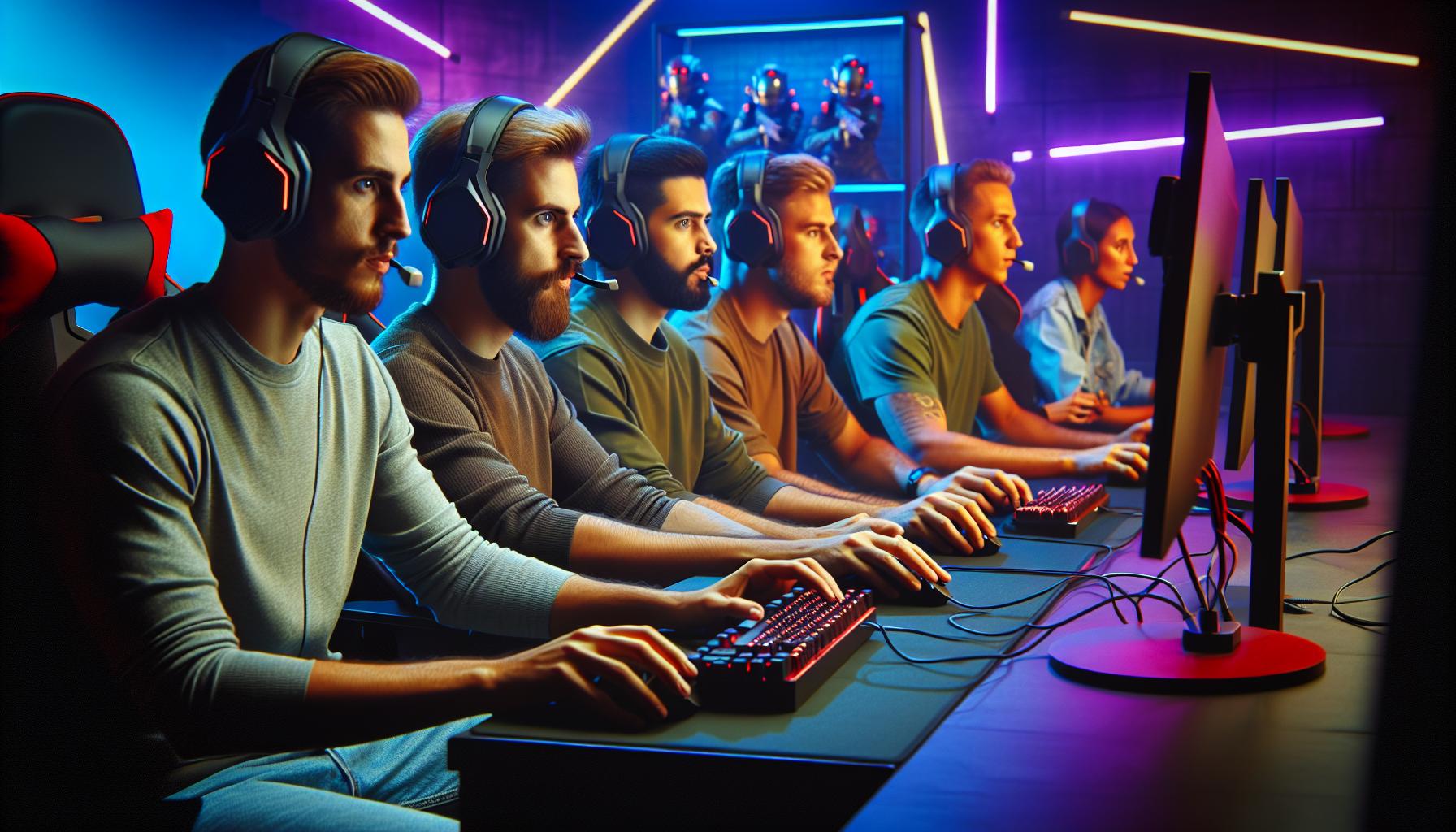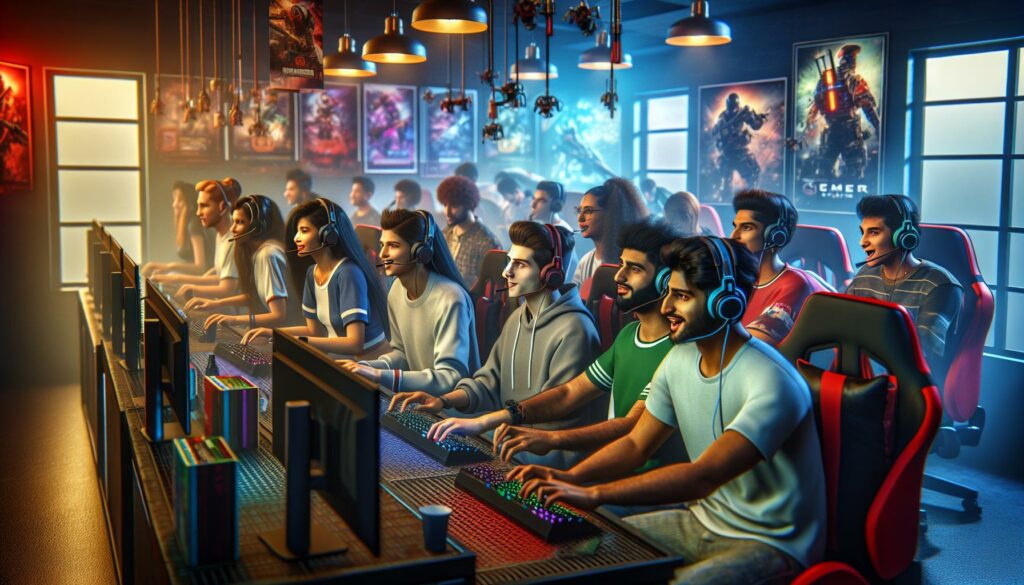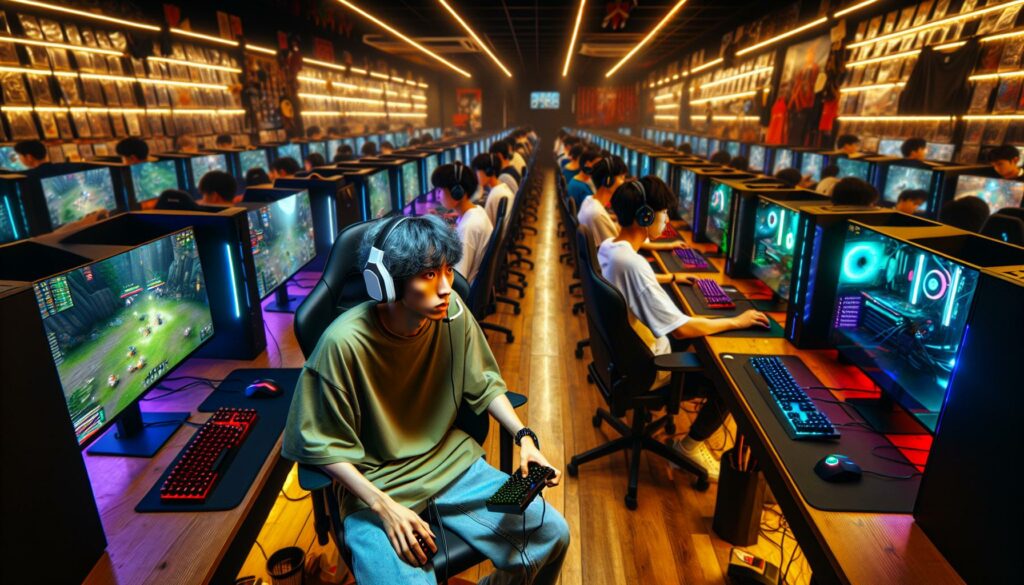Gaming culture has evolved far beyond the stereotype of teenagers huddled in dark basements with controllers. Today’s gaming community represents a diverse global network that shares common values principles and experiences. From teamwork and problem-solving to creativity and perseverance gaming cultivates valuable life skills that extend well beyond the virtual realm.
The gaming world’s unique value system has created its own social norms ethical codes and behavioral expectations. Players across different platforms and genres have developed unwritten rules of engagement fostering respect fair play and mutual support. These shared values don’t just make gaming more enjoyable – they’ve shaped an inclusive digital society where millions connect learn and grow together while having fun.
Values in the Gaming Culture
Gaming culture values transformed significantly since the 1970s arcade era through technological advancements social dynamics changes. The evolution reflects deeper shifts in how players interact build communities share experiences.
From Arcade Communities to Global Networks
Arcade communities in the 1970s centered around physical locations where players gathered to compete socialize. Local arcades created tight-knit groups focused on high scores friendly competition personal interactions. The 1990s introduced online gaming platforms connecting players across cities countries continents. Modern gaming networks like Steam PlayStation Network Xbox Live link millions of players through shared virtual spaces discussion forums streaming channels. These digital platforms facilitate real-time communication cross-cultural exchanges collaborative gameplay experiences. Gaming communities now span multiple platforms including Discord Reddit Twitch creating interconnected ecosystems for sharing strategies organizing tournaments building lasting friendships.
The Rise of Competitive Gaming Ethics
Competitive gaming established structured ethical frameworks governing player behavior tournament conduct fair play. Professional esports organizations implemented standardized rules covering match integrity anti-cheating measures respectful communication. Top esports leagues enforce strict codes of conduct with penalties for toxic behavior unsportsmanlike conduct match manipulation. Players teams organizers prioritize competitive integrity through anti-cheat software match monitoring systems transparent rulebooks. The gaming community embraces values like skill recognition strategic innovation team synergy positive competition. Tournament organizers maintain competitive balance through bracketing systems skill-based matchmaking transparent ranking systems. These ethical standards elevated competitive gaming into a respected professional pursuit with clear expectations responsibilities consequences.
Core Values That Define Gaming Culture

Gaming culture embodies distinct principles that shape player interactions across virtual environments. These values create standards for behavior while fostering positive engagement within gaming communities.
Teamwork and Collaboration
Multiplayer games emphasize cooperative gameplay through structured team dynamics. Players coordinate strategies in titles like League of Legends by assigning specific roles such as support healers tanks damage dealers. Online gaming platforms facilitate real-time communication through voice chat party systems messaging features. Cooperative missions in games like Destiny 2 require synchronized timing precise execution group planning to overcome challenges. Guilds clans foster long-term partnerships where experienced members mentor newcomers share resources contribute to collective goals. Cross-cultural collaborations emerge as players from different regions join forces in MMORPGs like Final Fantasy XIV creating diverse tactical approaches problem-solving methods.
Fair Play and Sportsmanship
Gaming platforms implement anti-cheat systems reporting tools moderation features to maintain competitive integrity. Players demonstrate respect through practices like “GG” (good game) acknowledgments post-match handshakes at tournaments balanced team compositions. Professional esports organizations enforce standardized rulebooks covering match conduct equipment specifications acceptable behavior. Tournament platforms like ESL FACEIT utilize automated detection systems to identify suspicious activities ensure legitimate competition. Community guidelines established by game developers emphasize zero tolerance for toxicity harassment promoting inclusive environments for all players. Rating systems reward positive behavior through endorsement mechanics karma points reputation scores encouraging fair play practices.
Social Impact of Gaming Values

Gaming values shape societal norms beyond virtual environments, influencing real-world interactions and cultural perspectives. Modern gaming communities demonstrate transformative power in connecting diverse groups and fostering global understanding.
Building Inclusive Gaming Communities
Gaming platforms create accessible spaces for people with different abilities, backgrounds and identities to participate equally. Discord servers host dedicated channels for various language groups, ensuring clear communication among international players. Gaming companies implement customizable accessibility features like adaptive controllers, color-blind modes and audio descriptions. Organizations like AbleGamers provide specialized gaming equipment to players with physical disabilities, enabling participation in mainstream gaming activities. Community moderators enforce strict anti-harassment policies to maintain safe spaces for underrepresented groups. Game developers increasingly include diverse character representation, storylines and cultural elements in their content.
Cross-Cultural Connections Through Gaming
Online gaming breaks geographical barriers through shared virtual experiences across continents. Players from Japan collaborate with teammates in Brazil on MMO raid missions, exchanging cultural perspectives during gameplay. Gaming conventions unite enthusiasts from 100+ countries, celebrating diverse gaming traditions through tournaments, cosplay events and panel discussions. Translation features in popular games enable real-time communication between players speaking different languages. Cultural exchange programs use gaming platforms to connect students worldwide, promoting understanding of different customs and traditions. Esports tournaments showcase international talent while highlighting unique regional playing styles and strategies.
Digital Citizenship in Gaming Spaces

Digital citizenship encompasses responsible behavior, ethical conduct, and secure practices in online gaming environments. The integration of social responsibility within gaming platforms creates frameworks for positive player interactions and safer digital experiences.
Online Behavior and Etiquette
Gaming platforms implement community guidelines that establish standards for player interactions. Players demonstrate respect through appropriate chat communication, avoiding toxic behavior such as hate speech or harassment. Experienced gamers model positive conduct by offering constructive feedback, sharing knowledge with newcomers, and maintaining composure during competitive matches. Many gaming communities utilize reputation systems, rewarding players who exhibit exemplary behavior with badges, titles, or special privileges. Multiplayer games feature built-in reporting tools that enable users to flag inappropriate conduct, maintaining community standards through peer monitoring.
Privacy and Security Awareness
Gaming accounts require robust security measures to protect personal information and digital assets. Players safeguard their accounts using two-factor authentication, strong passwords, and regular security updates. Popular gaming platforms encrypt user data, securing payment information and personal details from unauthorized access. Parents utilize parental controls to monitor children’s gaming activities, manage friend requests, and limit in-game purchases. Gaming communities promote cybersecurity awareness through educational resources, teaching players about phishing scams, account theft prevention, and safe trading practices. Modern games incorporate privacy settings that let users control their online visibility, friend requests, and message permissions.
The Future of Gaming Culture Values
Gaming culture values continue to evolve with technological advancements digital innovation. The integration of artificial intelligence virtual reality augmented reality transforms how players interact experience games.
Emerging Trends in Gaming Ethics
Advanced AI moderation systems detect toxic behavior enforce ethical standards in real-time across gaming platforms. Smart algorithms analyze player interactions identify patterns of misconduct enabling proactive intervention. Cross-platform ethical frameworks standardize behavior guidelines creating unified gaming experiences across different devices services.
Blockchain technology introduces transparent reward systems verifiable digital ownership enhancing trust fairness in virtual economies. Gaming companies implement environmental consciousness through energy-efficient servers carbon-neutral operations. Mental health awareness features include built-in break reminders wellness checkpoints positive reinforcement systems.
Shaping Tomorrow’s Gaming Community
Decentralized gaming platforms empower players to create govern their virtual spaces through community-driven decision making. Social impact gaming initiatives address real-world challenges through collaborative problem-solving environmental awareness campaigns. Cross-generational gaming experiences bridge age gaps through inclusive design accessibility features adaptive controls.
Virtual reality social spaces facilitate deeper connections between players through immersive shared experiences. Gaming communities embrace neurodiversity by implementing customizable sensory settings communication tools. Educational gaming programs integrate STEM learning social skills development fostering academic growth through interactive experiences.
These changes reflect the gaming industry’s commitment to creating more inclusive sustainable ethical virtual environments.
Social Ethics & Identity
Gaming culture has evolved into a dynamic ecosystem that champions positive values and fosters meaningful connections across global communities. The shared principles of teamwork fair play and mutual respect continue to shape player interactions while promoting personal growth and cultural understanding.
As technology advances and gaming platforms become more sophisticated these values will remain at the heart of virtual communities. The gaming world stands as a testament to humanity’s ability to create inclusive spaces where people can learn grow and connect regardless of their background or location.
The future of gaming culture looks promising as it continues to break down barriers and create opportunities for positive social impact. This digital revolution isn’t just changing how people play – it’s transforming how they interact learn and build communities in the modern world.



